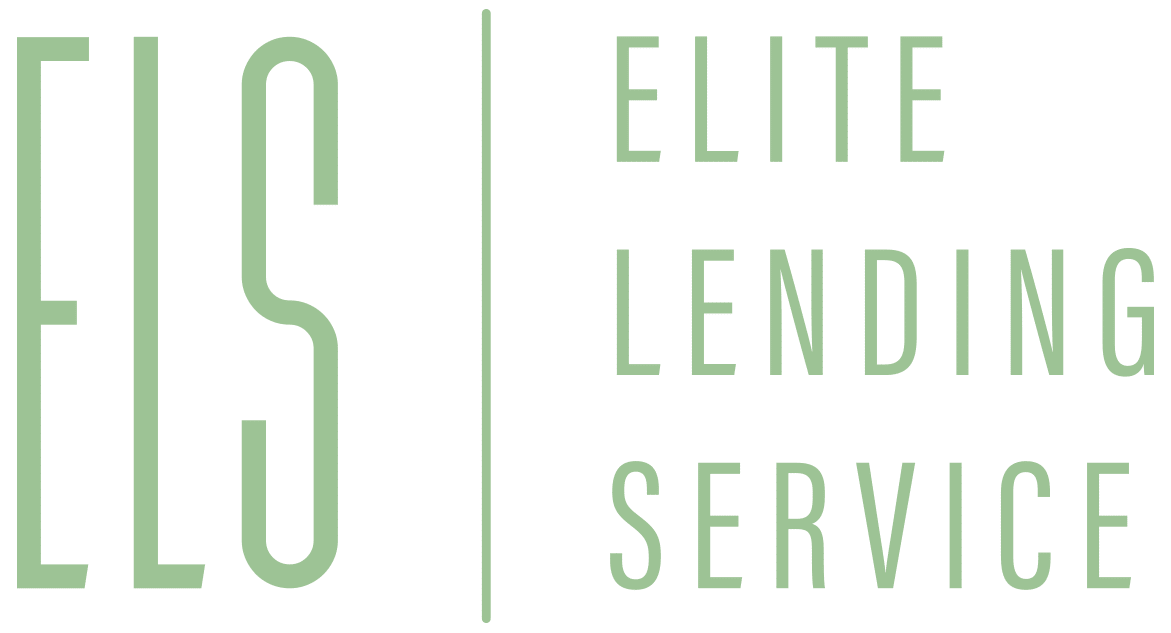Table of Contents
Have you ever wondered if you should go with a mortgage broker instead of a bank when buying a home? Is It Better to Use a Mortgage Broker or a Bank? This question goes beyond just saving you time; it can shift the choices you have when it comes to home loans. We’ll compare the two to show you exactly how they work and then highlight the key benefits and downsides of each. By the end, you’ll know which route is the right fit for your needs.
Key Takeaways
- Grasping the difference between mortgage brokers and banks is the first step to picking the right loan for your home.
- A mortgage broker usually shops around for you, tapping multiple lenders to find the lowest interest rates and fees.
- On the other hand, if you’ve already worked with a bank, the same bank may speed things up on your next mortgage because your financial history is already in its system.
- Keep in mind that broker and bank may each set different minimum credit scores and down payment percentages, so it’s smart to check both.
- No matter which route you pick, always compare the official loan estimates from both the broker and the bank. That way, you’ll lock in the best mortgage possible.
Understanding the Roles of Mortgage Brokers and Banks
When buying a house, it’s important to know what mortgage brokers and banks actually do. Each one helps you get a mortgage, but they do it in different ways. The better you understand those ways, the better you can weigh your options.
What Is a Mortgage Broker?
Think of a mortgage broker as your guide to the mortgage world. They don’t lend you the money themselves. Instead, they research and connect you to lenders, gathering mortgage options that fit your needs. Because they work with several lenders, they can show a wider range of mortgage deals than a single bank.
What Is a Bank?
A bank is a familiar service. You deposit your paycheck, manage savings, or get other loans. When it comes to mortgages, a bank lends you money directly and uses its own cash and deposits to fund that mortgage. Because it’s part of their main business, the mortgage process is convenient and connected to your other bank accounts.
Broker vs. Bank Summary
Simply put, the main difference is the range of choices. The mortgage broker shops around to find the best fit among many lenders, while a bank shows you what it has on its own menu. If a bank’s rate and terms suit you, that’s convenient. If not, the broker may find a better match in their wider market.
Knowing these roles helps you ask the right questions and get the mortgage that’s best for you.
Banks have their own way of doing mortgages, and usually that way is more cut-and-dry. Sure, it looks simpler, but the deal is that the rules can be tight and you mostly have to go with the package the bank hands you. So you often don’t have that many options; the bank’s version of “here it is” is the version you have to deal with.
Getting a mortgage straight through a bank can feel a little bit heavy. It’s more rigid compared to teaming up with a mortgage broker. A broker is like a scout who can click through a bunch of different lenders in one go, compared to you wandering through the one bank branch and its one-size-fits-all paperwork.
Why Use a Mortgage Broker?
Working with a mortgage broker makes the whole process way smoother and smoother is the key. One big reason is their one-on-one service. They sit down with you and really get what you need, so you don’t feel like you’re lost in a big bank’s maze. Suddenly, the scary mortgage world looks a little friendlier and way less complicated.
One-on-One Attention
Getting that one-on-one coach-like help is what brokers do best. They’re the ones who actually listen to your paycheck, your long-term goals, and any financial quirks. Because of that picture, they can hunt down the mortgage that’s a straight-up fit—even if you’re self-employed, freelance, or have a financial story that doesn’t match the mainstream. By the time you finish your mortgage chat, you usually feel more confident, and that’s the real win.

Access to Multiple Lenders
Mortgage brokers work with a big network of lenders, so they can quickly run the numbers on different loan options for you. That means you’ll see a range of rates and terms in one place. Most of the time, their offers can beat the rates you’d get at a single bank, and you’ll have more loans to pick from.
Expertise in the Mortgage Process
Mortgage brokers spend all day, every day writing loans. They know the paperwork, the deadlines, and the hidden rules so you won’t get stuck at the finish line. Their tips are especially handy for first-time buyers or people with complicated pay or credit histories. Their guidance can help you dodge big mistakes and keep the process on schedule.
The Benefits of Working with a Bank
Some buyers feel more comfortable working with a bank they already know. A bank can keep everything in-house, which means you’ll get one point of contact during the loan process. If a question pops up, you won’t have to play phone tag between your real estate agent, the appraiser, and the loan officer.
Streamlined Services
A straightforward process can be a huge time-saver. Banks usually have set rules, a single form package, and a one-touch digital system. This means your paperwork won’t bounce between multiple offices, which can help you get to the finish line a little more quickly.
Established Relationship
Leaning on the bank relationship you already have can pay off. If you have a checking, savings, or credit card account, your lender may give you a lower rate or a simple fee waiver. That extra savings may seem small, but over the life of the loan, even a tiny drop in your rate can mean thousands in your pocket.
Brand Recognition
When picking a lender, brand recognition matters. We tend to feel safer working with a name we already know. Many people feel more comfortable with big banks rather than small mortgage brokers, and that’s okay. Just make sure a lender’s reputation fits your own financial plans.
Costs with Mortgage Brokers vs. Banks
Banks and brokers both come with costs that can affect your wallet for a long time. Loan processing fees, discount points, and the way your interest rate is set are just a few items that can change the total cost of your mortgage. Taking time to compare these costs can save you from surprises down the road.
Possible Broker Fees
Mortgage brokers have their own costs, and how much you pay can vary. Many charge an origination fee, usually around 1% of the loan. Others receive their fee from the lender, saving you that expense. Before deciding, ask for a detailed fee sheet; that way, you’ll know if their service is worth the cost.
In some deals, the total fees you pay a broker can offset a lower rate, making the service a less attractive option. Weigh the fees carefully to see if the possible savings are worth the extra expense.
Comparing Interest Rates
When you compare banks and brokers, pay attention to the interest rate you receive. Mortgage brokers may come in with lower rates, using their industry connections to negotiate better deals. Banks can offer solid rates, too, but they may not work as hard to find the best possible fit. Make sure your quote process includes rate comparisons to see who’s giving you the best offer.
Banks may reward their existing clients with lower interest rates, so these customers might score a deal that saves them more over time. When you compare what lenders of different stripes offer, the spread in rates can surprise you. That spread is where long-term savings often show up.
The Application Process: Broker vs. Bank
Going with a mortgage broker or sticking with your bank is a choice that can shape your whole home-buying journey. The two paths have different application procedures, so knowing the roadmap for each makes your decision easier.
Broker Walk-Through
Your journey with a broker kicks off in a face-to-face or virtual meeting, where you share your home-buying timeline, income, and dreams. The broker then shops the market, scanning dozens of lenders so you can see which deal pencils out best. They guide you all the way to the finish, from getting a pre-approval letter to gathering pay stubs, bank statements, and W-2s. The extra time these steps take is often worth it, because the range of options keeps your choices wide.
Bank Walk-Through
Using your bank cuts through some of the busy work. You fill out the bank’s mortgage application in person or online, attach your financial details, and hand over supporting docs. After a few days, the bank sends you a loan estimate, a snapshot of the interest rate, closing costs, and your future monthly payment. The streamlined approach gives you a quickly processed loan—if the bank is ready to offer the money.
If you’re already banking with a lender, you might find that your mortgage gets approved quicker. Banks like having repeat customers, which can tilt the speed in your favor, especially if your previous account history is positive. Being a known entity can move your application along faster than if you were a brand-new face.
When to Use a Mortgage Broker
Knowing the right time to call a mortgage broker can take a lot of stress out of your journey to homeownership. Brokers serve as personal guides, offering tailored advice for your specific needs. They’re especially valuable if your finances are a bit tricky to explain.
First-Time Home Purchase
If you’ve never bought a home before, a mortgage broker is like having a personal tour guide in an unfamiliar city. They explain all the confusing terms and help you find a loan that fits your situation. With a broker managing the loan application and the mountains of paperwork, the entire home-buying process becomes a lot less stressful.
Complicated Finances
People with complex finances, such as a low credit score or a mixture of incomes, often find that banks don’t see the whole picture. Brokers work with a broader network of lenders, so they can present your application to the right match. That sometimes leads to better terms, higher chances of approval, and less hassle.
When to Stick with a Bank
If your finances are straightforward, working directly with your bank can save time. A bank loan is often a simpler path, with no intermediary to explain the situation to. Straightforward loans with clear terms can move smoothly from approval to closing when you’re already an existing customer.
Simplicity and Convenience
Most banks make applying for a mortgage pretty straightforward. They break things down into a few clear steps, so it’s easier to know what to do next. This helps you keep the process quick and simple, which is a big plus when you’re trying to buy a home.
Many borrowers prefer to work with a bank they already use every day. If you already have a checking or savings account there, it’s easy to get your mortgage from the same place. Plus, they might give you a better interest rate or lower fees because you’re already a customer. That often makes it the smartest way to go when it’s time to finance a new home.

How Elite Lending Service Can Help
Securing a home loan can feel overwhelming right now. That’s where Elite Lending Service steps in. They craft mortgage solutions that are as unique as you are. With one-on-one consultations, they walk you through all the options in today’s ever-changing market.
Personalized Consultations
At Elite Lending Service, mortgage specialists customize advice just for you. They review every piece of your financial puzzle—your paychecks, job, savings, debts, and credit. This thorough analysis lets them steer you toward the loan that fits you best, whether that’s a low-rate or adjustable mortgage.
Extensive Market Knowledge
The pros at Elite Lending Service live and breathe the mortgage market. They track trends, rates, and lender perks every day. Then they go to work for you, negotiating to secure favorable rates and loan terms. You can choose from a full lineup of loan options, including conventional and FHA. Expert guidance, fast approvals, and potentially lower origination fees mean you pay less over the life of the loan.
Customer Testimonials on Mortgage Brokers
Raving reviews have come from borrowers who worked directly with mortgage brokers. They report landing lower rates, streamlined paperwork, and a smoother closing. It’s not just convenience; the savings are real. On average, mortgage brokers help with budgeting more effectively, saving clients roughly $10,662. That’s proof brokers add value, turning a big financial decision into a calmer and more affordable experience.
Positive Experiences
Lots of home buyers feel really good about working with mortgage brokers. Brokers take time to listen and understand each client’s situation, so approvals happen faster and clients see more loan choices.
Reviews say brokers make a tough journey feel easy. They’re there at every stage, explaining things clearly and cheering people on.
Overcoming Challenges
When a client has a low credit score, brokers step in with helpful solutions. They show home buyers that, with the right guidance, tough situations can turn around. Many clients leave the closing table with loans they never thought they’d get.
Brokers are known for going the extra mile, showing how much they care about turning a client’s home dream into reality.
The Importance of Transparency
Borrowers can only make smart choices with clear mortgage info. When clients know about fees and costs, they see the full price tag of each loan. This knowledge makes comparing of different loans easier and the final choice simpler.
Understanding Fees and Costs
Borrowers must see every fee on the table to get the full picture. Many families feel shock when unexpected costs show up at the closing table. Transparency stops the surprises and helps people manage their finances with more confidence.
Studies show that when lenders clearly share loan details, borrowers feel more confident and less anxious, making the entire mortgage journey smoother.
Disclosing Loan Terms
Every mortgage broker and bank must clearly explain the loan terms to homeowners-to-be. When borrowers understand their monthly payments, interest rates, and total loan length, they know what they’re responsible for. Following U.S. and state mortgage laws not only keeps lenders compliant but also protects consumers and encourages fair lending practices.
When the lender shares full details, trust grows. This trust leads to smoother closings and happier borrowers, creating a win-win for everyone involved.
Frequently Asked Mortgage Questions
Prospective homeowners have lots of questions. What’s the best interest rate? How many years will the mortgage last? What’s the process, and how long will it take? Speaking with a mortgage broker is one of the quickest ways to get reliable answers and lower anxiety.
Common Concerns
Many borrowers don’t realise that a wide variety of loan options exist. Some may hear different rates, terms, and fees that the lender they trust doesn’t mention. A broker can review all available products and explain how closing costs, points, and variable terms affect the bottom line, helping borrowers choose the mortgage that fits them best.
Expert Insights
Mortgage experts can break down the tricky parts of home loans. Many recommend working with a broker since they can often score lower rates and offer tailored support—money saved here can add up over the loan’s life. Be sure to ask every question you have at your first chat; gathering clear answers early is the best way to plug into the best deal.
Contact Elite Lending Service
Need a loan that’s built around your life? Reach out to Brad Bailey at Elite Lending Service. With years in the business, he walks everyone from first-timers to those facing financial bumps through the mortgage maze. His step-by-step guidance is always tailored and never misses a detail.
Get in Touch with Brad Bailey
Are you ready to start—or is your mortgage journey stalled and needs answers? Brad Bailey at Elite Lending Service is here to match your needs to the perfect loan program and rate. Pick up the phone or send a message; expert help is just a click or a call away.
Phone and Email Information
Dial Elite Lending Service at (904) 263-0376 or message brad@elitelendingservice.com. Reach out now for start-to-finish mortgage support and take the next step toward home ownership with confidence.

